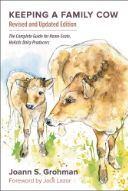Post by bluetigers on Mar 11, 2011 8:12:14 GMT -5
I have finished the first three days of the course, three more days to go.
I hope my head stops spinning soon, their is so much info.
We are doing Goal setting, Finances, Planned grazing.
The importance of making a profit.
Where you are on The Savory Brittleness Scale, and their is much more, but right now I can't think of it.
www.holisticdecisions.com/Nuts_001BrittlenessScale_viewonly.pdf
www.holisticmanagement.org/index.php?option=com_content&view=article&id=6&Itemid=40
I hope my head stops spinning soon, their is so much info.
We are doing Goal setting, Finances, Planned grazing.
The importance of making a profit.
Where you are on The Savory Brittleness Scale, and their is much more, but right now I can't think of it.
www.holisticdecisions.com/Nuts_001BrittlenessScale_viewonly.pdf
Benefits of Holistic Management
Using available resources to achieve a "triple bottom line" of sustainability
The "triple bottom line" of managing holistically is reflected in a rich return of sustainable economic, environmental and social benefits. It is achieved with resources the land manager already has in place. Whether land is used for ranching, organics production, food production in pastoral communities or public lands preservation, or even if it is unused, it can be returned to health and/or its productivity greatly increased without large infusions of cash, equipment or technology.
Holistic Management enables land stewards to utilize resources available now to obtain these results:
Reversal of desertification.
More biologically active soils.
More productive rangeland or cropland.
Removal of existing Carbon Dioxide from the atmosphere.
Less new Carbon Dioxide due to reduction of crop and forage burning.
Reduced costs.
Enhanced profits & livelihoods.
Increased carrying capacity.
Maximum benefit from rainfall.
Protection from drought.
Improved wildlife habitat.
Better food security.
Improved economic viability for organics production.
Clean water.
Healthier environment.
Stronger family relationships.
Using available resources to achieve a "triple bottom line" of sustainability
The "triple bottom line" of managing holistically is reflected in a rich return of sustainable economic, environmental and social benefits. It is achieved with resources the land manager already has in place. Whether land is used for ranching, organics production, food production in pastoral communities or public lands preservation, or even if it is unused, it can be returned to health and/or its productivity greatly increased without large infusions of cash, equipment or technology.
Holistic Management enables land stewards to utilize resources available now to obtain these results:
Reversal of desertification.
More biologically active soils.
More productive rangeland or cropland.
Removal of existing Carbon Dioxide from the atmosphere.
Less new Carbon Dioxide due to reduction of crop and forage burning.
Reduced costs.
Enhanced profits & livelihoods.
Increased carrying capacity.
Maximum benefit from rainfall.
Protection from drought.
Improved wildlife habitat.
Better food security.
Improved economic viability for organics production.
Clean water.
Healthier environment.
Stronger family relationships.
www.holisticmanagement.org/index.php?option=com_content&view=article&id=6&Itemid=40


 I'm really interested in the benefits of attending a class for a small farmer/rancher vs reading the book.
I'm really interested in the benefits of attending a class for a small farmer/rancher vs reading the book.



